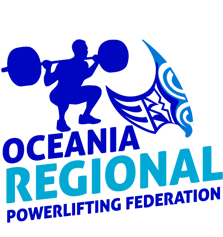IPF Anti-Doping Rules
The IPF has taken its role as the premier global powerlifting federation very seriously and has worked diligently with our sporting partners and associates to become a responsible, high quality organization governing athletes committed to drug-free, high-standard competition. The IPF Anti-Doping Commission’s primary task is to oversee the IPF’s anti-doping program and to ensure IPF’s ongoing compliance to the World Anti-Doping Code.
The IPF is committed to protecting the health of our athletes and maintaining the integrity of our sport. As a Signatory to the World Anti-Doping Code (“the Code”), the IPF has adopted and implemented anti-doping policies and rules which conform with the Code. These are reflected in the following IPF Anti-Doping Rules:
- The IPF Anti-Doping Rules shall be effective on 27 June 2023.
- Reminder of changes to the IPF Anti-Doping Rules as of 1 January 2021.
The IPF Anti-Doping Rules apply to the IPF, to each of its Regional Federations, National Federations, Athletes, Athlete Support Personnel and other Persons, each of whom are deemed, as a condition of their membership, accreditation and/or participation in the sport of powerlifting to have agreed to be bound by these Anti-Doping Rules.
For more information on the Code and its standards, click on the Useful Anti-Doping Links in this section.
International-Level Athletes
Although all IPF Athletes are bound by the IPF Anti-Doping Rules, there are specific provisions within the IPF Anti-Doping Rules that apply to International-Level Athletes, with regard to testing, returning from retirement, whereabouts information, results management and appeals.
The following are considered to be International-Level Athletes for purposes of the IPF Anti-Doping Rules:
- Athletes who are in the IPF Registered Testing Pool, IPF Testing Pool or any other Testing pool established by IPF, and
- Athletes who are nominated to compete in the Junior or Open Category at the designated IPF Championships are considered International-Level Athletes for a 12 month period starting from the date of nomination to a designated Championship for which the Athlete was nominated. The designated IPF Championships are:
- World Sub-Junior & Junior Powerlifting Championships
- World Sub-Junior, Junior & Open Classic Powerlifting Championships
- World Open, Sub Junior, Junior & Masters Classic & Equipped Bench Press Championship
- World Open Powerlifting Championships
Athletes that compete in Sub-Junior and Masters categories for the above events are not considered International-Level athletes for the purpose of applying the IPF Anti-Doping Rules.
Visit the Lifter’s Platform or additional information on your rights and responsibilities as an International-Level Athlete
IPF National Federations
Under the World Anti-Doping Code, the World Anti-Doping Agency (WADA) is the international independent agency responsible for monitoring compliance to the Code of its Signatories, including the IPF. Non-compliance to the Code can have significant consequences on our sport so it is important that we, the IPF and its member National Federations, all work together to ensure compliance.
As stated in the IPF Anti-Doping Rules, IPF holds the responsibility to adopt, implement and enforce anti-doping policies and rules which conform with the Code. It is also the IPF’s responsibility to ensure that National Federations implement Code-compliant anti-doping programs, rules and policies, as a condition of their membership to the IPF. When National Federations do not comply with the IPF Anti-Doping Rules or the Code, IPF is empowered and expected by WADA to impose applicable and appropriate sanctions on such non-compliant National Federations.
National-level testing must be done in compliance with the Code, using either the country’s National Anti-Doping Organization (NADO) or through the IPF’s program.
For more information or for assistance, contact your country’s National Anti-Doping Organization or the IPF at ipfantidoping(at)cces.ca.

